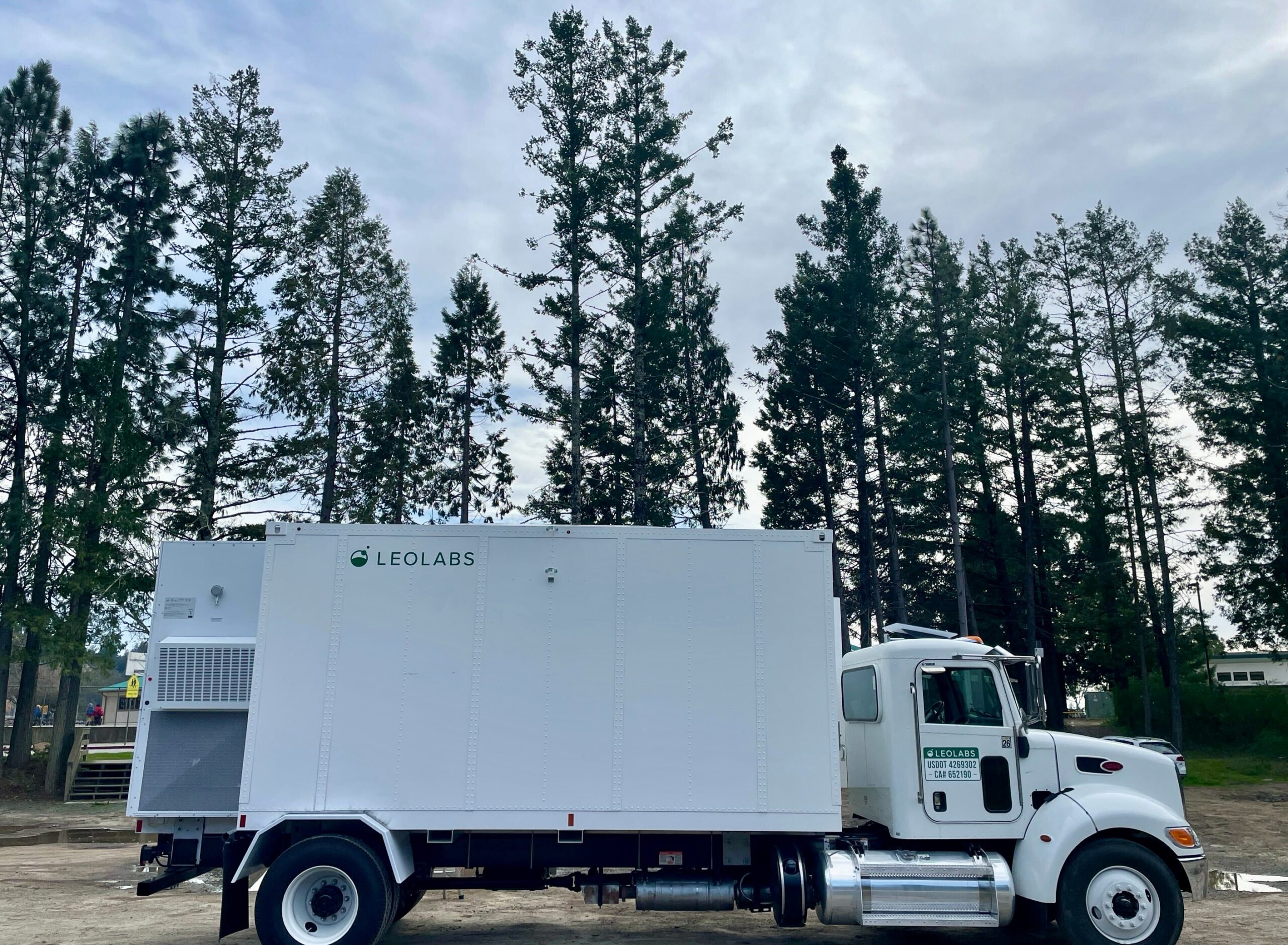COLORADO SPRINGS, CO, 07 April 2025 — LeoLabs, the world’s leading mission partner for persistent Orbital Intelligence, today announced plans to further proliferate its Global Radar Network with Scout, a new, next-generation radar class designed for mobility, modularity, and rapid deployment. As space becomes more congested, competitive, and unpredictable, this new paradigm in ground-based space surveillance is designed to keep pace with and directly meet evolving mission needs.
The company unveiled its first expeditionary Scout radar this morning at the 40th annual Space Symposium. Scout is a containerized S-band Direct Radiating Array (DRA) radar system that can be easily transported for rapid deployment to any location worldwide in response to dynamic Space Domain Awareness (SDA) missions, including monitoring foreign launches. Scout radars can be deployed solo or in dense networks depending on mission requirements.
“Scout is a game changer for advanced SDA. Mobile radars offer timely proliferation and the ability to quickly adapt to changing threats by deploying wherever and whenever our customers need it most,” said LeoLabs CEO Tony Frazier. “By integrating next-generation and legacy radars, LeoLabs is creating a resilient, low-latency network for persistent Orbital Intelligence. As we deploy new radar classes and technologies, LeoLabs continues to expand our capabilities across mission sets and orbital regimes, enhancing our ability to detect, track, and characterize objects and activity in space.”
The introduction of Scout follows the company’s announcement in December that its first Seeker Ultra High Frequency DRA radar in Arizona was operational. In March, SpaceWERX, the innovation arm of the U.S. Space Force, selected LeoLabs for a $60 million Strategic Funding Increase (STRATFI) opportunity, which will include LeoLabs deploying a Seeker-class radar in the Indo-Pacific region by 2027.
Heightened adversarial activity, the advent of mega-constellations, the increasingly frequent pace of launch, and more sophisticated spacecraft maneuverability all underscore the need for resilient ground-based monitoring solutions that can adapt to the continuously evolving space environment.
Scout and Seeker augment LeoLabs’ legacy Tracker phased array radars in Australia, the Azores, Costa Rica, New Zealand, and Texas—strengthening the resilience and responsiveness of the company’s ground-based space monitoring capabilities and ensuring coverage in critical regions. LeoLabs is also developing Ranger, a fixed, scalable S-band DRA radar class with the goal to field systems that can detect and track space debris as small as 2cm for advanced Space Traffic Management missions.
LeoLabs’ next-generation radars support a range of mission areas, from space domain awareness and space traffic management, to emerging applications such as launch and maneuver search and detection. By investing in mobile and modular radar technologies for rapid deployment, the company is setting the standard for how commercial innovation can support space security, space safety, and missile defense.
About LeoLabs
LeoLabs is the world’s leading mission partner for persistent Orbital Intelligence. We enable military space commands, civil government agencies, and commercial operators to confidently detect, track, characterize, and respond to threats in space. Our proliferated, multi-mission radar network, real-time orbital data catalog, and AI-powered analytics support secure, safe, and dynamic space operations. We are committed to delivering the living map of activity in space that safeguards our way of life on Earth.
LeoLabs Press Contact:
Kristin Cody
